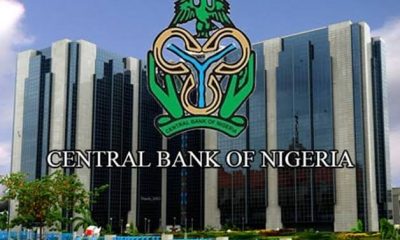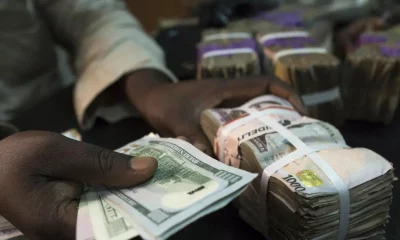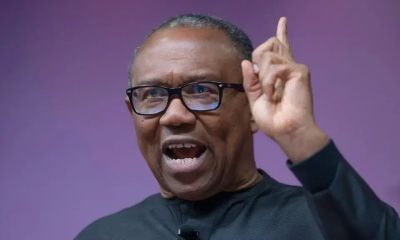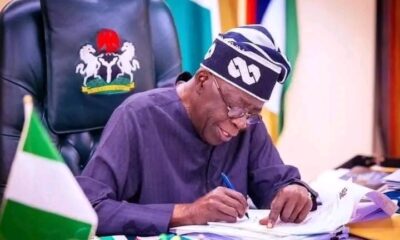Headline
CBN Lifts Ban On BDCs, Introduces New Operational Mechanism
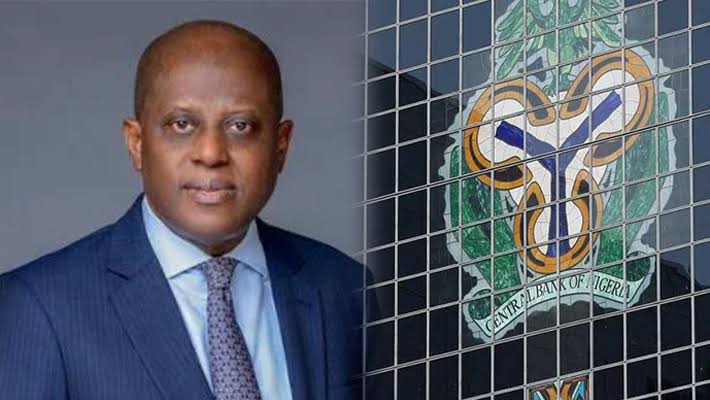
In a major development aimed at financial stability and strengthening the naira, the Central Bank of Nigeria (CBN) plans to resume its weekly intervention in the country’s foreign exchange (FX) market through the Bureau de Change (BDC) operators.
In 2021, the central bank, in a bid to achieve its mandate of safeguarding the value of the local currency, ensuring financial system stability, and shoring up external reserves, announced the immediate discontinuance of foreign currency sales to Bureau de Change (BDC) operators in the country.
However, the resumed intervention, which would reportedly commence today for funding as well as Tuesday for collection, will see the apex bank inject FX into the subsector in a bid to rescue the naira from further depreciation against major currencies, particularly the US Dollar. The collection will be at designated CBN branches in Lagos, Abuja, Kano, and Awka, while details of the naira accounts to be credited for funding bidding will also be made available today.
CBN is also expected to publish the list of eligible BDCs to benefit from its funding using certain compliance criteria.National Executive Council of Association of Bureau De Change Operators of Nigeria (ABCON) hinted on the latest developments through a memo to its members over the weekend.
The association also warned members that it will no longer be business as usual under the new supervisory regime of the central bank, as any infringement or infraction would result in outright revocation of license and prosecution.
ABCON said through the association’s various engagements with the central bank, in conjunction with ABCON’s strategic partners, CBN had agreed to its request, under the bank’s supervision, to inject liquidity into the market through a weekly intervention beginning today.
CBN assured ABCON that the new circular on the Revised Regulatory and Supervisory Guidelines to BDCs, which was introduced over the weekend, was only a draft exposure that required the association’s inputs before the release of the final guidelines by the apex bank.
To that effect, the letters of the guidelines were not cast in stone, the association’s leadership told its members, who had been worried over the sweeping reforms in the document, which, among other things, prescribed N2 billion and N500 million minimum capital for national and state BDCs, respectively.
Headline
EFCC bars dollar transactions, orders embassies to charge in naira

The Economic and Financial Crimes Commission has barred foreign missions based in Nigeria from transacting in foreign currencies and mandated them to use Naira in their financial businesses.
The EFCC has also mandated Nigerian foreign missions domiciled abroad to accept Naira in their financial businesses.
The anti-graft agency said the move is to tackle the dollarisation of the Nigerian economy and the degradation of the naira
The Commission, therefore, asked the government to stop foreign missions in Nigeria from charging visa and other consular services in foreign denominations.
The EFCC gave the advisory in a letter to the Minister of Foreign Affairs, Amb. Yusuf Tuggar, for onward transmission to all foreign missions in the country.
In the letter, the EFCC said it issued the advisory because the practice of paying for consular services in dollars was in conflict with extant laws and financial regulations in Nigeria.
In a letter dated April 5, 2024, which was addressed to the Minister of Foreign Affairs, Ambassador Yusuf Tuggar, titled: “EFCC Advisory to Foreign Missions against Invoicing in US Dollar,” the EFCC Chairman, Ola Olukoyede expressed dismay over the invoicing of consular services in Nigeria by foreign missions in dollars.
The EFCC cited Section 20(1) of the Central Bank of Nigeria Act, 2007, which makes currencies issued by the apex bank the only legal tender in Nigeria.
The letter read, “I present to you the compliments of the Economic and Financial Crimes Commission, and wish to notify you about the commission’s observation, with dismay, regarding the unhealthy practice by some foreign missions to invoice consular services to Nigerians and other foreign nationals in the country in United States dollar ($).
“It states that ‘the currency notes issued by the Bank shall be the legal tender in Nigeria on their face value for the payment of any amount’.
“This presupposes that any transaction in currencies other than the naira anywhere in Nigeria contravenes the law and is, therefore, illegal.”
The commission further stated that the rejection of the naira for consular services in Nigeria by certain missions, along with non-compliance with foreign exchange regulations in determining service costs, is not just unlawful but also undermines the nation’s sovereignty embodied in its official currency.
The letter continues: “This trend can no longer be tolerated, especially in a volatile economic environment where the country’s macroeconomic policies are constantly under attack by all manner of state and non-state actors.
“In light of the above, you may wish to convey the commission’s displeasure to all missions in Nigeria and restate Nigeria’s desire for their operations not to conflict with extant laws and regulations in the country.”
Diplomatic sources said yesterday, May 10, that some embassies were wondering whether the EFCC’s advisory represented the position of the Federal Government.
Headline
Prince Harry visits sick Nigerian soldiers in Kaduna

Prince Harry and his team visited the 44 Nigerian Army Reference Hospital in Kaduna to interact with wounded soldiers who are receiving treatment.
The Duke of Sussex is in Nigeria with his wife to champion the Invictus Games, which Harry founded to aid the rehabilitation of wounded and sick servicemembers and veterans.
Nigeria joined the Invictus Community of Nations in 2022 becoming the first African country to join.
Prince Harry’s visit to Kaduna came 68 years after his late grandmother Queen Elizabeth II visited the state during the time of the late Premier of Northern Region Sir Ahmadu Bello.




-

 Headline2 days ago
Headline2 days agoSuspend cybersecurity levy– Reps to CBN
-

 Headline2 days ago
Headline2 days agoTinubu resumes work after foreign trip
-

 Business2 days ago
Business2 days agoNigeria needs over $2bn to revive Ajaokuta Steel Plant, says Minister
-

 Entertainment1 hour ago
Entertainment1 hour agoAMVCA Cultural Day: BBNaija’s Neo, Venita win Best Dressed Male, Female
-

 Metro1 hour ago
Metro1 hour agoEx-Sports Minister laments after hospital neglected him for hours over N80000 deposit
-

 Headline52 mins ago
Headline52 mins agoPrince Harry visits sick Nigerian soldiers in Kaduna
-

 News2 days ago
News2 days agoShan George’s money returned to Zenith Bank account

